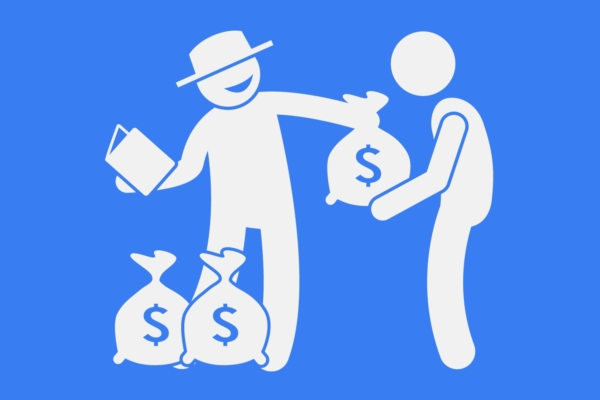
Mortgage Closing: What Happens After?

Finalizing your mortgage is a huge step in your homeownership journey—congrats! But after weeks of paperwork, negotiations, and waiting, it’s easy to assume the work is over. While the biggest hurdles are behind you, homeownership comes with a few final steps to ensure everything is in order.
From filing the necessary paperwork to protecting yourself from unexpected surprises, the post-closing period comes with a few key tasks that can save you money and help you avoid common pitfalls.
12 Things to Do After Mortgage Closing
These twelve tips can help you transition smoothly into homeownership. Taking care of these tasks early will give you peace of mind and set you up for long-term success in your new house.
1. File a homestead exemption.
If your home is your primary residence, you may qualify for a homestead exemption, which can significantly reduce your property tax bill. This exemption isn’t automatic in many states (including Texas), so check with your local tax office and file before the deadline to maximize your savings.
2. Set up automatic mortgage payments.
Missing a mortgage payment can lead to late fees and negatively impact your credit score. Luckily, most lenders have autopay options that automatically draft the money from your account each month. Automatic payments ensure that your mortgage will be paid on time every month, giving you one less thing to worry about.
From Mortgages to Home Equity Loans
Our local, award-winning lending team is ready to help you begin today.
3. Create a homeownership budget.
Unfortunately, owning a home comes with more costs than just your mortgage payment. Property taxes, homeowner’s insurance, and routine maintenance can add up quickly—not to mention unexpected problems that may arise. Creating a realistic budget for these expenses can help you avoid financial surprises.
4. Update your estate plan.
No one likes to think about what happens after they die, but it’s a necessary conversation to have when you purchase a major asset. Now that you own a home, it’s important to include it in your estate plan. Adding your property to your will or trust ensures that it’s transferred to your chosen heirs without complications. If you don’t have an estate plan, now is a good time to speak with an attorney about setting one up.
5. Expect a temporary credit score dip.
Taking on a new mortgage often causes a slight drop in your credit score. This is due to a number of reasons, including a hard credit inquiry, an increase in total debt, and a decrease in your average account age.
The good news is this dip is normal and usually temporary. As you make on-time payments and your mortgage history builds, your credit score will recover and may even improve over time.
6. Opt out of trigger leads.
After closing on your home, you might get a sudden flood of phone calls, emails, and mail from lenders and insurance companies. This happens because credit bureaus sell your mortgage activity as trigger leads, signaling to companies that you may be interested in other financial products.
To stop these solicitations, you can opt out at OptOutPrescreen.com or call 1-888-5-OPT-OUT.
7. Watch out for misleading mail.
Many new homeowners receive official-looking letters that claim urgent action is needed for things like mortgage insurance, home warranties, refinancing options, or home improvements. Some may even mimic government documents or your lender’s branding, while others might claim that your home needs urgent repairs.
In most cases, these are marketing ploys or scams. If you receive a letter that looks suspicious or pressures you into a service, check with your mortgage lender before responding.
8. Store important documents.
After closing, you’ll have a stack of important paperwork, including your mortgage agreement, deed, home insurance policy, and closing disclosure.
These should be stored in an accessible place, like a fireproof safe or file cabinet. Backing them up on a secure digital storage solution is also a good idea. Keeping these documents organized ensures you can quickly reference them if needed.
9. Update your address everywhere.
Once you’ve moved in, update your address to avoid missing important mail.
Start with the post office to set up mail forwarding, then notify the DMV, IRS, banks, credit card companies, insurance providers, and your employer. Don’t forget to update subscription services, online shopping accounts, and voter registration as well. Taking care of these updates early can prevent headaches down the road.
10. Create a home maintenance calendar.
Owning a home means staying on top of routine maintenance. Doing so not only keeps everything running smoothly, but it can also help you avoid costly repairs down the road. Setting reminders for key tasks like HVAC tune-ups, gutter cleaning, water heater flushing, and seasonal maintenance can help prevent unexpected issues.
It’s also a good idea to schedule annual inspections for your roof, plumbing, and major appliances so you can catch small problems before they become expensive fixes.
11. Check your home warranty coverage.
If your home purchase included a home warranty, take the time to read through the coverage details. Some warranties cover major systems like HVAC, plumbing, and electrical, while others may extend to appliances or structural components. Understanding what is and isn’t covered—and knowing how to file a claim—can save you time and frustration if something goes wrong. Be sure to also check for any required maintenance or service contract terms that could impact your coverage.
12. Review your home insurance policy.
Now that you’re officially a homeowner, it’s a good time to review your insurance policy to ensure you have adequate coverage. Check that your dwelling coverage amount reflects the cost to rebuild your home in case of a total loss, and consider whether you need additional protection for things like flood, earthquake, or personal property beyond standard coverage limits. If you have expensive valuables, such as jewelry or electronics, you may need additional riders or endorsements to fully protect them.
You may also want to look for ways to save on your monthly payment. Some insurance companies offer discounts for things like smoke detectors, while others will give you a deal if you bundle your policy with other types of insurance like auto.
Close on Your Home with Confidence
While the responsibilities of a homeowner are never really over, taking care of these post-closing tasks will help you start enjoying your new home with confidence. Remember—your lender is a great resource and can help answer any questions you may have about closing or what to do after. By staying proactive and informed, you can avoid common pitfalls and set yourself up for success! points or choose lender credits to reduce closing costs, understanding par mortgage rates can help you maximize savings and secure the best loan for your needs.




